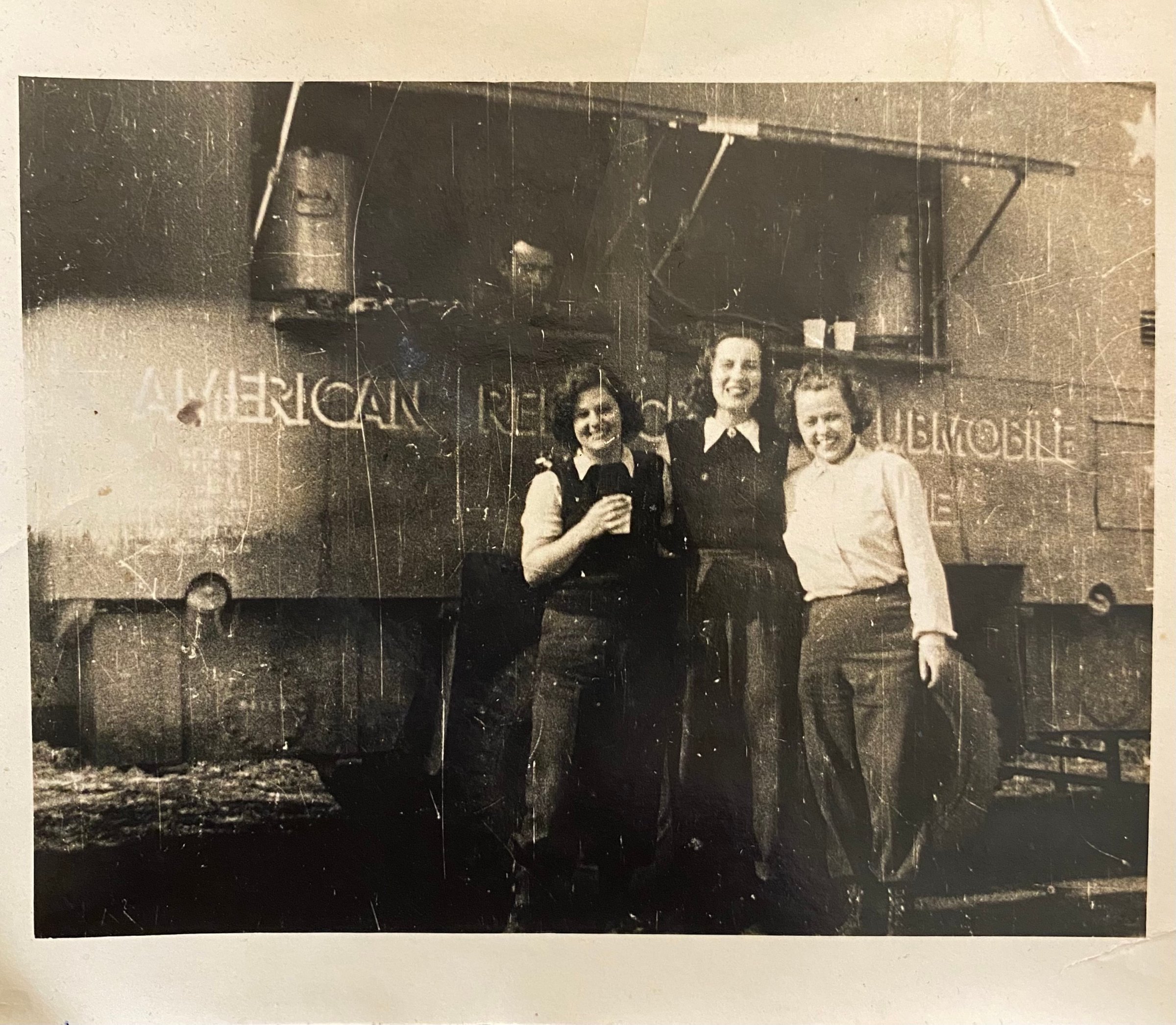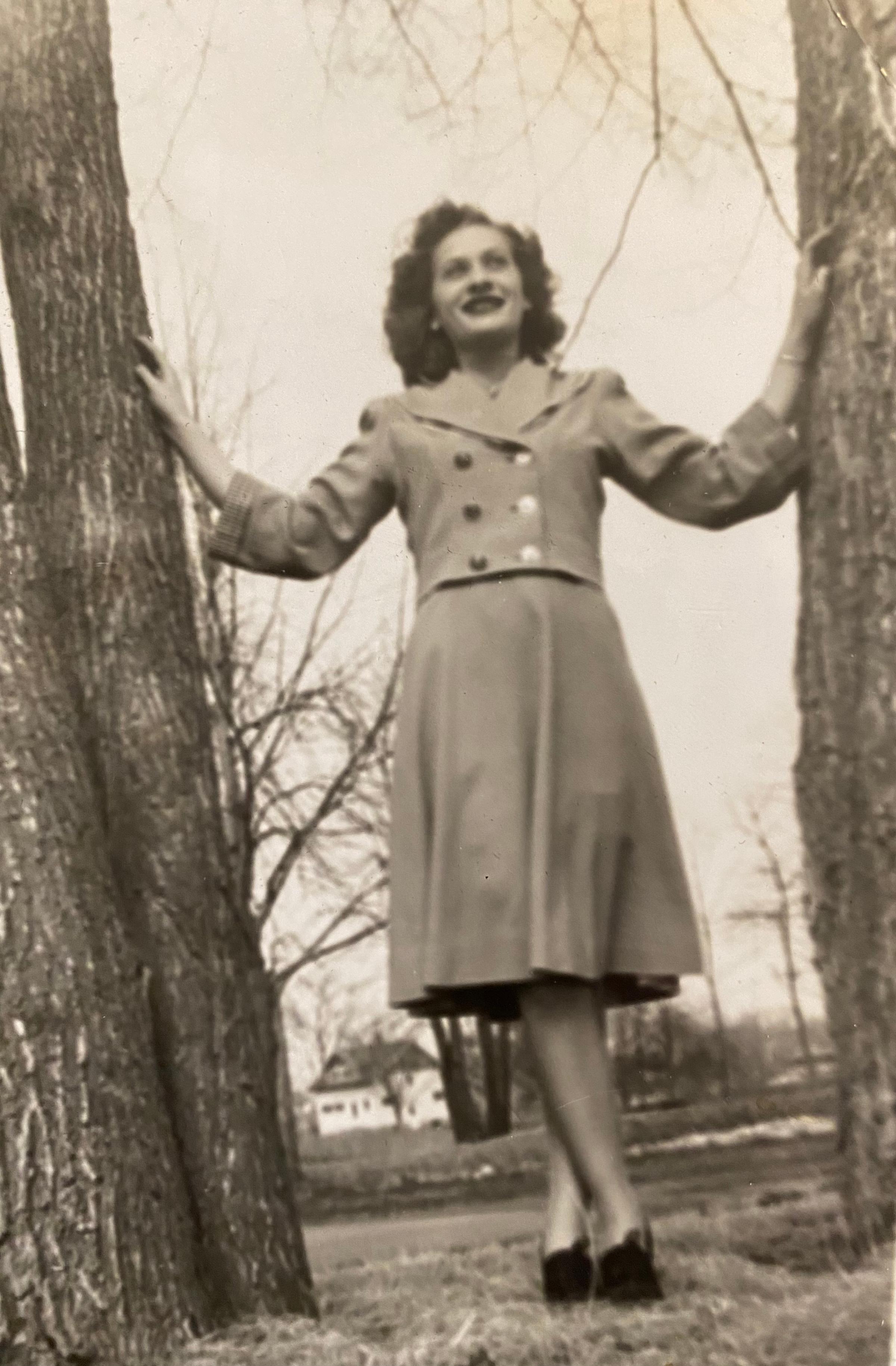
My mother was the only American in our uproarious Mexican family. She didn’t speak Spanish, she didn’t like California, yet she often was the life of the party. When we gathered, she laughed easily and often, even when she didn’t understand the jokes. Her elegant manners delighted my relatives, and when she served them coffee in her antique demitasse cups, it was the most exotic thing in the world to them. Her name was Phyllis, but they called her Feliciana – which roughly translates to The Joyous One.
In my childhood, the Mexicans seduced me with bullfights, handmade tortillas, and the perpetual gossip and tall tales that only tias and abuelitas can pull off. My mother, however, enchanted me with Dickens, Twain, and stories of a fairy tale kingdom called New York, where she had grown up. The fact that I am a writer shows she won, that her constant tending of my literary interests set the path and ultimately paid off. The fact that I have spent my career writing about the borderlands and my family therein is an irony I have wrestled with.
My mother died before my first book was published in 1993, and it’s only now, 17 books into my career, that I understand it was perhaps all an apprenticeship to earn the right to tell her story. I owe her the best that I have.
I was born in Tijuana and raised in Barrio Logan in southeast San Diego. Growing up, I knew bits of my mother’s history; she was born in 1916, which sounded so long ago. She grew up in New York, which sounded so far away from our dirt alley apartment. The stories she told me sounded like something from the Emerald City. She’d grown up in a magical sounding place called Staten Island, and her mother had owned an antique shop in Manhattan and knew Steinbeck and Einstein. I knew there was an aunt who grew raspberries in impossible Mattituck, Long Island, though it was a hard place for me to picture. And I knew that my mother at age 27, left them all to volunteer with the Red Cross Clubmobile Corps in World War II. I knew from the deep scars on her legs, that she came back from the war horribly wounded. But what I didn’t know is why she never returned home. She never took me to visit New York or the family she abandoned. I never understood how she had ended up in Tijuana or why she stayed in California.
More from TIME
There was an old Army footlocker in our apartment that she told me never to open. Being a kid, I got into it the first chance I had. Inside were her memories, the stories from the war that she couldn’t—or didn’t—want to tell.
When I began to research my new novel almost 10 years ago, I started with the photographs, scrapbooks and journals she had left behind. I tried to reconstruct my memories of the occasional impressions my mother had given me of her time in the European theater. I thought I might be able to write a nonfiction account of my mother’s World War II experiences, taking what I could sketch out from her memories and filling it in with the historical record. However, I was not prepared to discover how little information I could find about the women of the WWII Clubmobile Corps. The Red Cross eventually assigned more than 300 women to the European theater, volunteers culled from across the country in a highly competitive recruitment drive. I had the basic facts: the women had to be 27 years old, preferably with some college experience. Driving their converted two and a half ton trucks with coffee machines and donut makers in the back, I knew these women were assigned to troops on the front line, providing snacks and small talk to exhausted GIs.


I poured over the letters and newspaper columns from other Clubmobile women and plotted my mother’s memories alongside theirs. However, it soon became obvious to me that the scant official information I had was not sufficient to get what I was after: I wanted to conjure my mother. I wanted to re-create her voice and hear her tell me the stories of her life. I wanted to know what happened to her. There is nothing my mother loved more than the novels of Hemingway and Michener and I wanted to give her story that sort of immersive experience. Ultimately I realized that maybe through fiction, I could somehow better understand her story.
Eventually I took my family—the wife and daughter my mother never met—and we set out to retrace her steps. We explored London and found the remains of the trucks the Dollies drove in museum reconstruction sheds. We touched the old seats she might have sat upon. We went to Cambridgeshire and I stared up at the bedroom window of a thatch-roofed house in Glatton where my mom had been bivouacked, where her photo albums showed her staring into the sky with a dreamy look as bombers rumbled overhead. We visited the local pub, and at the Glatton Airbase, drank a fireball toast to her and the boys. The gentleman who tends the base walked us down the landing strip—it seemed to be miles long, surrounded by tall grasses. He went into the field and pried up a triangular chunk of tarmac. “This is a piece of the original runway. You’re better take it. Your mum might have stood on it.” I imagined that to be true and brought that chunk of asphalt home. Everything we did and everywhere I went brought me closer to understanding what her experience was, and how much it shaped her.
We drove the backroads throughout Germany and Austria, stumbled across an impromptu oompa-band parade in Füssen, mispronounced every tiny hamlet on the map, enjoyed the outdoor cafes of Weimar, always imagining what these towns and fields must have looked like during the war. It was a sort of alchemy seeing these places for the first time—as my mother had seen them for the first time—and yet, also imagining her pulling over to the side of the road, donuts and coffee at the ready. We followed her shadow to Buchenwald, where Patton asked the Clubmobile crews to help support the liberation of the camp. And then, I saw from a distance the Bavarian hills from which she plummeted one night in a jeep accident that nearly severed her legs.
I learned, mile by mile, revelation by revelation. I felt that bits of her shadow remained among these hills, these linden trees and white birch trunks, these battlegrounds that still had an aura of dread, these abandoned and silent runways where she sent pilots and flight crews aloft with a cup of coffee and a napkin holding three hot donuts, and where she waited for their return. I almost felt the anxiety and grief she must have experienced when planes did not return, and her horror when they crashed and burned 100 yards from her.
And then finally, we went back to her beginnings. On Staten Island, in the wooded hills of Richmond Village. We visited her grammar school, with the stairs she sat on as a child. I followed my daughter, walking a faint trail to the creek below—a trail I knew from my mother’s descriptions. I saw my daughter lay her hand on the oak trunks and imagined my mother had steadied herself on these same trees. The split rail fences were still there. When we got to the water, my daughter found a flat stone beside the tiny waterfall and I knew if she’d had a book with her, she would have opened it and forgotten all about us. Was I seeing my child, or my mother?
In that moment, my daughter was barely 10 years younger than my mother was when she went off to war. As if two movie reels overlapped, I imagined my daughter following my mother’s footsteps and I had to sit down. How would my daughter have survived what my mother endured? How would she be forever changed? And I wondered if that was why my mother could not return to this place: She had been broken, displaced. She no longer fit. Perhaps keeping this place and the people in her past as she remembered was all she could do. Perhaps she could no longer find her way. I would never really know. But maybe I could write her back home.
The story I want to tell spools out from this beginning: A quiet stream, an old house in the wood, a dreamy girl. The patriotism of a nation at war inspiring a young woman to serve her country the best way she could. A war that wounds everything it touches, even three women in a donut truck. One woman who could not forget. A son who finally understands.
More Must-Reads From TIME
- The 100 Most Influential People of 2024
- Coco Gauff Is Playing for Herself Now
- Scenes From Pro-Palestinian Encampments Across U.S. Universities
- 6 Compliments That Land Every Time
- If You're Dating Right Now , You're Brave: Column
- The AI That Could Heal a Divided Internet
- Fallout Is a Brilliant Model for the Future of Video Game Adaptations
- Want Weekly Recs on What to Watch, Read, and More? Sign Up for Worth Your Time
Contact us at letters@time.com